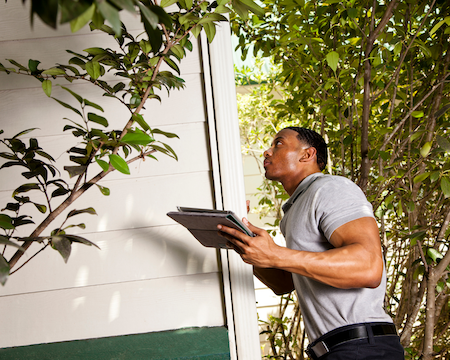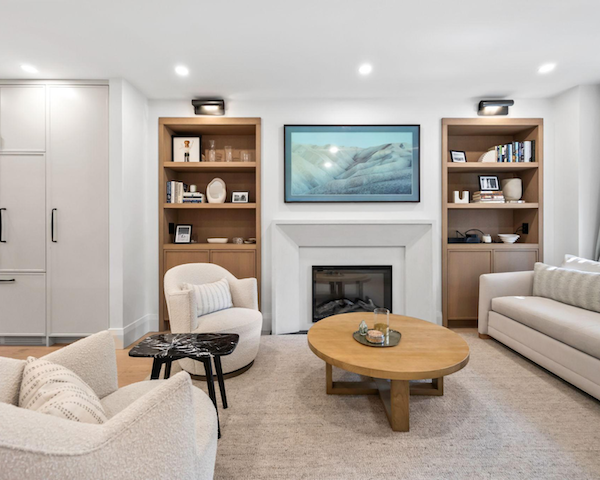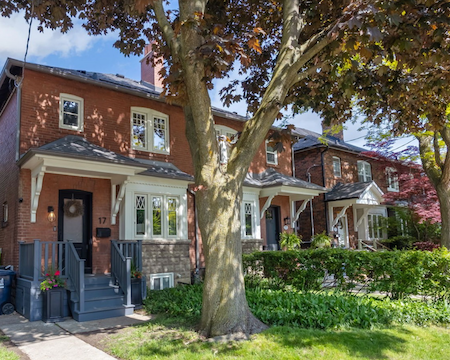Few things are more exciting for a buyer than visiting open houses and touring homes in person. If the listing agent has done their job, you’ll be busy imagining where to put your furniture and what colour to paint each room.
However, you’ll want to look far beyond the surface before making your offer. A house can look spectacular during a quick visit. How can you be sure it really is everything it seems? That’s where a home inspection comes in. In this post, we’ll answer a few of the most common questions clients ask about home inspections.
Want the latest facts when it comes to Midtown Real Estate? Subscribe to our newsletter for up-to-date statistics, tips, and early access to our listings right here.
What Is a Home Inspection?
The most beautifully decorated home could be hiding numerous flaws that a layperson would not be able to detect. Anything that couldn’t be uncovered without training or a deeper investigation is called a “latent defect.”
“Patent defects” are obvious. For example, imagine you walked into a house and instantly saw a broken window or clear water damage. A seller does not need to point these out since they are (or should be) easily observable.
Technically speaking, a seller is legally obligated to disclose latent defects (those that you cannot see), but there is a caveat. You would need to prove that the seller knew about them before they sold the home. If you can’t prove prior knowledge, you would have little to no recourse after ownership changes hands.
A home inspection is conducted by an experienced professional who has the expertise, training, and often a set of specialized tools that allow them to uncover flaws that might impact your decision to buy.
Should you buy a home in Midtown Toronto? The posts below might help you build a strong case:
- Where Is Midtown Toronto?
- Toronto Midtown Vs Toronto East: Which Is Better?
- How to Find Your Midtown Toronto Neighbourhood
What Does a Home Inspection Cover?
We often hear the question “What do home inspectors look for?” A house inspection closely examines the home’s readily accessible systems. A home inspector is not going to tear down walls to check the wiring or pipes. They will also not move any furniture or enter locked spaces.
As such, there are some limitations and no guarantees against future defects. In addition, most home inspectors don’t check for mold or other environmental hazards unless they are visually observable. You may be able to expand the scope through an add-on service.
The most important aspect of a home inspection report is that it identifies deficiencies that could impact the safety and long-term value of the property. Though not bulletproof, it alerts you to hazards or low-quality construction projects that you wouldn’t uncover on your own.
Based on the home inspection report, you may decide not to place an offer at all. If you move forward, you might be able to use the results as a negotiation tool. If demand is soft, a seller could potentially offer a concession on price to allow you to budget for any recommended repairs or upgrades.
How Much Does a Home Inspection Cost?
The cost of the service will depend on the experience and qualifications of the individual inspector, as well as the age, size, and condition of the property. Your home inspector will provide you with a quote based on a flat fee after asking details about the property. It can help to request a few quotes from different professionals, and as always, be sure to get it in writing.
Prices vary, usually ranging from $350 to $700, with an average hovering around the $500 mark. A small condo will typically cost more than a large detached home. Townhouses will fall somewhere in the middle.
How Long Does a Home Inspection Take?
The time required for a home inspection will depend on the age of the property and its square footage. Older homes with outdated systems will typically require a longer evaluation to ensure everything is safe and structurally sound.
A newer property or significantly renovated house usually takes less time. Most inspections can be completed within a few hours, and even large properties rarely exceed six hours.
A Sample Home Inspection Checklist
It’s important to know what a home inspection includes. While a home inspection won’t necessarily catch everything, no matter how thorough or skilled the inspector may be, it can identify many observable problems with a property. Primarily, a home inspection focuses on critical elements that affect the home’s safety, while allowing you to avoid properties with too many red flags. Knowing what to look for in a home inspection can help you make a more informed decision when considering a home purchase.
Here are examples of some items home inspectors looks for:
- Potential gas leaks or other flaws that pose an immediate risk.
- Electrical wiring defects, such as exposed live wires or overloaded panels.
- Flawed structural components or signs of a less-than-solid foundation.
- Major components that could soon require a significant financial investment, such as a roof replacement or a failing HVAC system.
- Water damage and plumbing issues.
You don’t always have to request a home inspection before purchasing. However, a thorough report will help you make an informed choice to proceed with an offer or move on to the next listing.
Are you in the planning phase of your house hunt? The posts below can help you become a well-informed buyer:
- What to Look for When Buying a House
- When Should You Buy Your First House?
- How to Spot a Great Home in Toronto
How to Find a Home Inspector
Though there are currently no formal standards in Canada, some provinces do require home inspectors to be licensed. Ontario is not one of them, at least not yet. That said, the Ontario Association of Home Inspectors (OAHI) is often considered the gold standard when it comes to professional qualifications. Stringent membership requirements can indicate that a member has a high level of training and expertise.
The Canadian Association of Home and Property Inspectors (CAHPI) is a national organization that also demands strong standards. Many professional home inspectors are members of both associations.
Word of mouth can be a good way to find a home inspector, especially if someone you trust has recently bought a house. If all else fails, your real estate agent can connect you with a well-trained and ethical home inspector you can trust. No matter where they come from, you’ll want to do your due diligence even if they have glowing references.
Arranging for a home inspection will take some time and effort, and a nominal fee will be involved. Nevertheless, most buyers consider it a small price to pay compared to the peace of mind and confidence it brings when buying a new home.
Do you have questions about your upcoming move? Our Midtown Toronto real estate agents are happy to help. Reach out to us at david@batorigroup.com, bobby@batorigroup.com or call (416) 485-7575 with any questions.

Book a Consultation
Whether buying or selling, our team can help you achieve your real estate goals. Start the conversation today.

